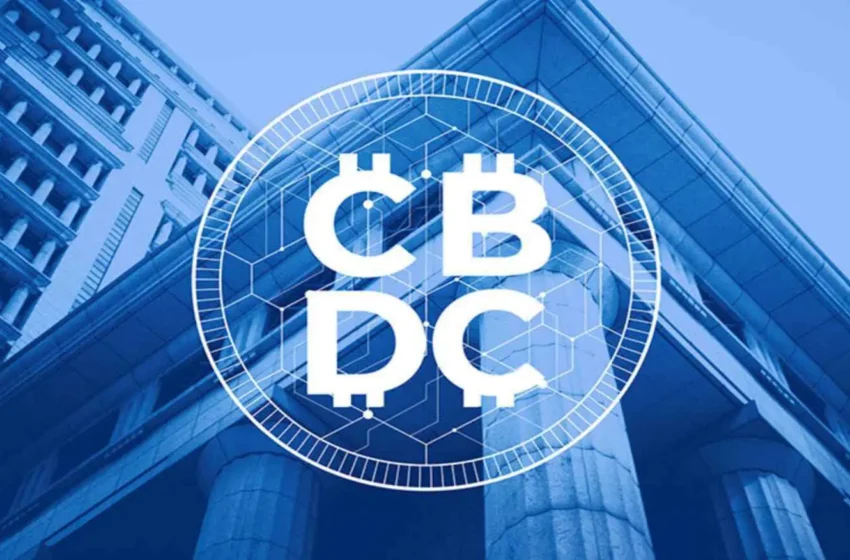ZachXBT Alleges Axiom Employees Misused Internal Tools to Track User
CBDC Anti-Surveillance Act Clears U.S. House Vote
(Originally posted on : Crypto News – iGaming.org )
On May 23, the U.S. House of Representatives passed the Republican-led CBDC Anti-Surveillance State Act (H.R.5403). This legislation aims to prohibit the Federal Reserve from creating or launching a government-backed digital currency. Republican Majority Whip Tom Emmer introduced the bill, emphasizing the potential dangers to Americans’ monetary privacy.
Central bank digital currencies (CBDCs) represent a digital version of a nation’s fiat money, regulated by the country’s central bank. These can be used for both retail and wholesale transactions. Emmer argues that Fed-issued CBDC could severely undermine American monetary privacy. The House supported his stance, moving to ban the development of any such currency.
In addition to the outright ban, the House adopted amendments restricting the Federal Reserve from engaging in any CBDC pilots or research programs. Republican members criticized previous initiatives like “Project Hamilton,” calling it a blatant evasion of legislative scrutiny. “My legislation ensures that the United States’ digital currency policy remains in the hands of the American people so that any development of digital money reflects our values of privacy, individual sovereignty, and free market competitiveness,” stated Rep. Emmer following the vote.
Legislation and Broader Implications
The CBDC Anti-Surveillance State Act has garnered support across party lines, reflecting a shared concern about digital currency policies. This bipartisan effort aligns with the recent passage of the Financial Innovation and Technology for the 21st Century Act, or FIT21 Act, on May 22. The FIT21 Act aims to establish a clear regulatory framework for digital currencies, detailing the oversight roles of the Commodity Futures Trading Commission (CFTC) and the U.S. Securities and Exchange Commission (SEC). The CFTC will oversee digital commodities markets, including exchanges and broker-dealers.
Both the CBDC Anti-Surveillance State Act and the FIT21 Act are set to advance to the Senate for further deliberation and potential amendments. As the 2024 U.S. Presidential elections approach, crypto advocates are actively lobbying for favorable regulatory policies.
New players only. 175% on 1st Deposit + $75 Risk Free Bet







 Bitcoin
Bitcoin  Ethereum
Ethereum  Tether
Tether  XRP
XRP  USDC
USDC  Solana
Solana  TRON
TRON  Dogecoin
Dogecoin  Lido Staked Ether
Lido Staked Ether  Figure Heloc
Figure Heloc  WhiteBIT Coin
WhiteBIT Coin  Cardano
Cardano  USDS
USDS  Bitcoin Cash
Bitcoin Cash  LEO Token
LEO Token  Wrapped stETH
Wrapped stETH  Hyperliquid
Hyperliquid  Chainlink
Chainlink  Wrapped Bitcoin
Wrapped Bitcoin  Monero
Monero  Binance Bridged USDT (BNB Smart Chain)
Binance Bridged USDT (BNB Smart Chain)  Canton
Canton  Ethena USDe
Ethena USDe  Stellar
Stellar  USD1
USD1  Wrapped eETH
Wrapped eETH  Rain
Rain  Hedera
Hedera  sUSDS
sUSDS  Litecoin
Litecoin  Dai
Dai  PayPal USD
PayPal USD  Coinbase Wrapped BTC
Coinbase Wrapped BTC  Zcash
Zcash  Avalanche
Avalanche  Sui
Sui  WETH
WETH  Shiba Inu
Shiba Inu  World Liberty Financial
World Liberty Financial  Cronos
Cronos  USDT0
USDT0  Toncoin
Toncoin  Tether Gold
Tether Gold  Polkadot
Polkadot  Uniswap
Uniswap  PAX Gold
PAX Gold  MemeCore
MemeCore  Mantle
Mantle  Ethena Staked USDe
Ethena Staked USDe  BlackRock USD Institutional Digital Liquidity Fund
BlackRock USD Institutional Digital Liquidity Fund  Circle USYC
Circle USYC  Bittensor
Bittensor  Falcon USD
Falcon USD  Aave
Aave  Aster
Aster  Pepe
Pepe  OKB
OKB  Global Dollar
Global Dollar  Sky
Sky  Pi Network
Pi Network  syrupUSDC
syrupUSDC  Bitget Token
Bitget Token  Ripple USD
Ripple USD  HTX DAO
HTX DAO  NEAR Protocol
NEAR Protocol  Ethereum Classic
Ethereum Classic  Internet Computer
Internet Computer  BFUSD
BFUSD  Ondo
Ondo  POL (ex-MATIC)
POL (ex-MATIC)  Worldcoin
Worldcoin  KuCoin
KuCoin  Superstate Short Duration U.S. Government Securities Fund (USTB)
Superstate Short Duration U.S. Government Securities Fund (USTB)  Gate
Gate  Pump.fun
Pump.fun  Jupiter Perpetuals Liquidity Provider Token
Jupiter Perpetuals Liquidity Provider Token  Midnight
Midnight  Cosmos Hub
Cosmos Hub  Ethena
Ethena  Jito Staked SOL
Jito Staked SOL  NEXO
NEXO  pippin
pippin  USDtb
USDtb  Binance-Peg WETH
Binance-Peg WETH  Rocket Pool ETH
Rocket Pool ETH  Official Trump
Official Trump  Algorand
Algorand  Binance Bridged USDC (BNB Smart Chain)
Binance Bridged USDC (BNB Smart Chain)  Spiko EU T-Bills Money Market Fund
Spiko EU T-Bills Money Market Fund  Render
Render  Wrapped BNB
Wrapped BNB  USDD
USDD  Function FBTC
Function FBTC